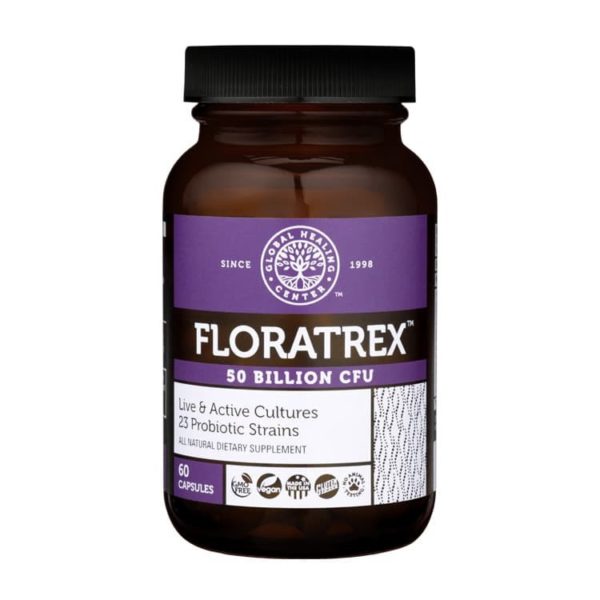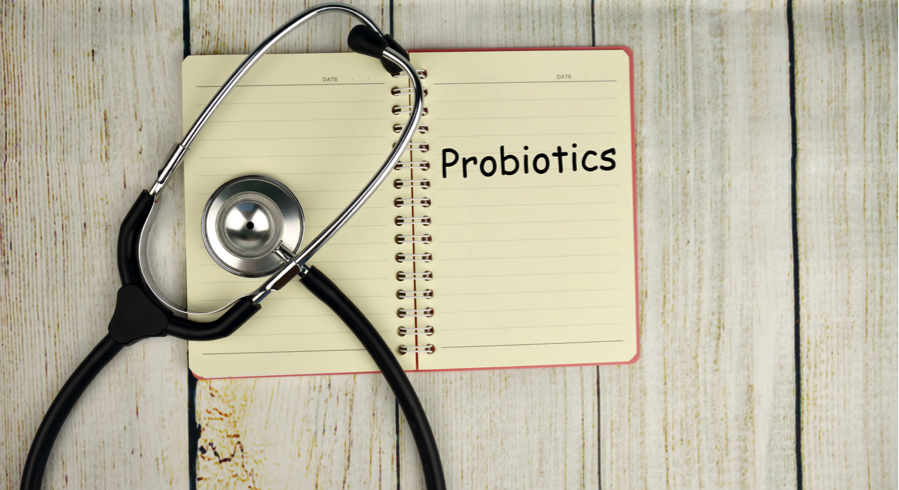Your gut is populated with “good” and “bad” bacteria. All these microorganisms make up what’s called the microbiota, and a healthy balance of all that good and bad bacteria in your gut can make a big difference in your health. But there are other factors like stress, toxins, and antibiotics—that can affect the diversity of the microbiota and balance of “good” bacteria. [1]
What Are Probiotics?
These good bacteria are also called called probiotics, and more and more people are taking them for the health perks. Studies suggest they can aid in digestion, boost the immune system—even regulate mental health. [2] [3] And if heart health is a concern, a probiotic might even help with that. [4] There’s also recent evidence suggesting probiotics can help you maintain a healthy weight. [5]
Possible Side Effects of Probiotics
Probiotics are far from perfect; there are side effects you should consider. For the most part, those side effects for healthy individuals are mild issues—things like gas or bloating. One study suggests, though, that probiotics could shorten diarrhea symptoms or help discourage much more severe gastrointestinal problems (such as Crohn’s disease or Irritable Bowel Syndrome), so perhaps those slight side effects aren’t that bad after all. [6]
Whenever someone is taking live bacteria, though, there’s always a possibility of danger. Those who are critically ill shouldn’t take probiotics for this reason. For example, a Dutch study suggests a higher death rate among acute pancreatitis patients when drinking a probiotic blend of six active cultures. [7] In this case, “good” bacteria is seen by the already weakened immune system as harmful and attacked as invaders.
What Probiotics Can’t Do
But, while they can certainly help supplement a healthy lifestyle, don’t think of probiotics as a miracle drug. Don’t just jump on the bandwagon without doing your research. After all, probiotics are something of a big business right now, with the latest research suggesting they could be worth about $45 billion by 2018. [8]
So, yes, while there are a few things to consider when taking probiotics, if you’re healthy and think they’re right for you, try them! The probiotics market is currently flooded with hundreds of competing products, so you may feel a bit overwhelmed finding the right one for you. While needs differ from person to person, there are a few good rules of thumb to keep in mind. Look for a probiotic supplement with multiple bacterial species and a large number of CFUs (colony forming units). If you want to keep it very simple, give Floratrex™ a try. The standard formula contains 50 billion CFUs. Floratrex contain 23 distinct bacterial species, making Floratrex the most complete and comprehensive probiotic on the market today.
Have you tried probiotics? What was your experience? Tell us about it in the comments!
If you’re looking for a supplement that can improve your gut health, check out FLORATREX at the AlrightStore.

References (8)
- David, L. A. et al. Host lifestyle affects human microbiota on daily timescales. Genome Biology. 15 (7).
- Behnsen, J. et al. Probiotics: Properties, Examples, and Specific Applications. Cold Spring Harbor Perspectives in Medicine.
- Foster, J.A. & McVey-Neufeld, K.A. Gut-brain axis: how the microbiome influences anxiety and depression. Trends in Neurosciences. 36 (5).
- Baker, J. et al. Intestinal microbiota determine severity of myocardial infarction in rats. FASEB.
- Goodrich, J. et al. Human Genetics Shape the Gut Microbiome. Cell. 159 (4).
- Gevers, D. et al. The Treatment-Naive Microbiome in New-Onset Crohn’s Disease. Cell Host & Microbe. 15 (3).
- Besseling, M. G. et al. Probiotic prophylaxis in predicted severe acute pancreatitis: a randomised, double-blind, placebo-controlled trial. Lancet. 371 (9613).
- Transparency Market Research. Probiotics Market (Dietary Supplements, Animal Feed, Foods & Beverages) – Global Industry Size, Share, Trends, Analysis, Growth And Forecast 2012 – 2018. Transparency Market Research.
†Results may vary. Information and statements made are for education purposes and are not intended to replace the advice of your doctor. Global Healing Center does not dispense medical advice, prescribe, or diagnose illness. The views and nutritional advice expressed by Global Healing Center are not intended to be a substitute for conventional medical service. If you have a severe medical condition or health concern, see your physician.





Leave A Comment